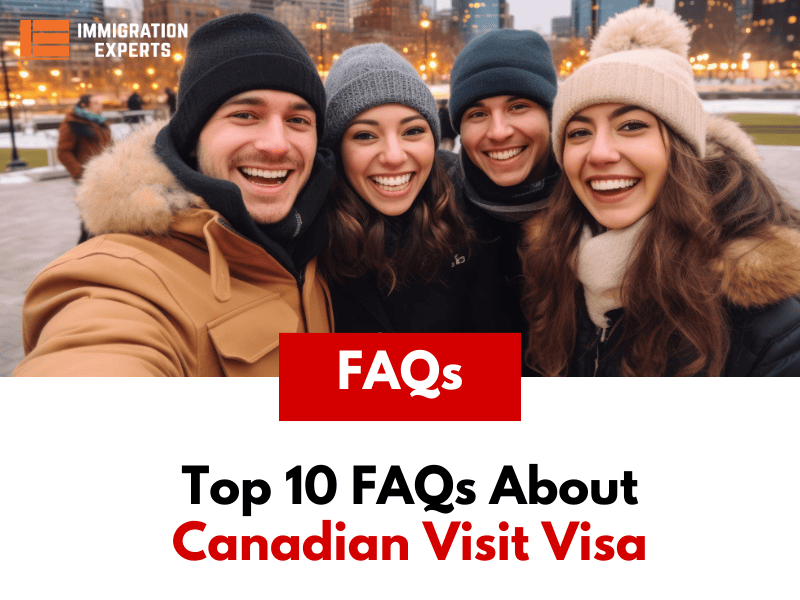051 8439995, 042 35911332

The latest updates on visitor visa rules for certain Mexican citizens might lead some people planning to visit Canada to have uncertainties about their circumstances.
To help out, we put together a set of common questions that could be useful to check out before investing the effort, time, and money needed to travel to Canada.
Limits on Visiting Canada: How Long Can You Stay?
Typically, visitors to Canada can stay for up to six months from their arrival date (or until their passport expires, whichever is sooner). The specific departure date will be marked in their passport or given in a document by a Canada Border Services Agency (CBSA) officer.
Those visiting Canada who wish to stay longer than their original permission can apply for an extension.
Single and Multiple-Entry Visas: What’s the Difference?
Single-entry visas allow entry to Canada only once, while multiple-entry visas permit entry multiple times as long as the visa is still valid.
It’s important to note that all visitor visa applicants are automatically considered for a multiple-entry visa. However, Immigration, Refugees, and Citizenship Canada (IRCC) evaluates each application separately and grants visas accordingly.
If you have a single-entry visa, you’ll need a new visa to enter Canada again after leaving, unless you’re going directly to either the United States or St. Pierre and Miquelon.
Multiple-entry visas are valid for either 10 years or until one month before the passport expires, whichever is shorter. Each entry to Canada using a multiple-entry visa allows the holder to stay for up to six months at a time.
Can I Submit One Visa Application for My Family if We’re Traveling Together?
Certainly, while all visitor visa applications for a family group can be sent together in one envelope with a single payment receipt covering all fees, each individual must fill out and sign their application.

This applies to all necessary forms except the Family Information form, which is only required for applicants 18 years or older.
Parents or guardians can assist children in filling out their forms, and for applicants under 18, a parent or guardian must sign their documents.
How Can I Assist a Friend or Family Member in Visiting Canada?
While your friends and family members need to fill out their visa applications, you can provide a letter of invitation to support their application to visit Canada.
It’s important to understand that while this document can be beneficial by outlining how you intend to assist the visa applicant, such as offering to cover accommodation costs, it does not guarantee approval of their visitor visa.
Is a Medical Examination Required for Obtaining a Visitor Visa?
Whether visitors to Canada need a medical exam depends on how long they plan to stay.
For stays of six months or less, a medical exam is generally not required unless the visitor will be working in a job where protecting public health is crucial. A list of such jobs is available for reference.
For visitors staying longer than six months, they must undergo a medical exam if they meet either of these criteria:
- They have been living or residing in a designated country or territory for six or more consecutive months.
- They are applying for a Parent and Grandparent Super Visa.
This requirement applies to all visitors, including citizens of visa-exempt countries, who have been in any of the eligible countries “in the one year immediately preceding the date [the visitor] sought entry into Canada.”
Is There Any Difference Between a Visitor Visa and a Visitor Record?
Foreign nationals planning to visit Canada as visitors typically need a Canadian visit visa, which allows them to stay for up to six months in most cases.

On the other hand, a visitor record is issued by Canada Border Services Agency (CBSA) officers to either extend or limit the duration of a visitor’s stay in Canada. This document may also be provided to foreign nationals by either CBSA or Immigration, Refugees and Citizenship Canada (IRCC) after their application to extend their stay or restore their status in Canada is approved.
Can I Use the Valid Visa From My Old Passport in My New Passport?
IRCC mentions that it’s permissible to travel to Canada with a valid visitor visa that’s in an old passport. However, travelers in this scenario must carry two essential documents:
- The old passport contains a valid visa.
- The new valid passport or travel document.
In some cases, travelers might need to explain to Canada Border Services Agency (CBSA) officers why their old passport is no longer valid.
It’s important to note that to prevent delays at the Canadian border, IRCC suggests that all visitors to Canada obtain a new visitor visa in their new, valid passport.
What Are the Steps to Extend My Stay as a Visitor?
To extend your stay in Canada, you need to provide biometrics (fingerprints and a photograph) and apply for a visitor record. This document offers three options for extending your stay:
- As a visitor.
- As a worker authorized to work in Canada without a work permit.
- As a student authorized to study in Canada without a study permit.
You can find the steps for applying for a visitor record online on this IRCC webpage.
As for appealing a denied visitor visa, IRCC does not have an appeal process for visitor visa applications. If your visitor visa is denied, you can re-apply, but IRCC advises doing so only if your circumstances have changed or if you have new information that might affect the outcome of your application.
Is a Visa Necessary if I’m Just Passing through Canada on My Journey to Another Country?
The documentation needed for transit through Canada depends on each person’s specific situation.
Generally, travelers fall into two categories: those who require a visa (from a country where visas are needed) and those who are exempt from needing a visa (from a country that requires an Electronic Travel Authorization, eTA).
For visa-required travelers, some may need a visitor visa if they are:
- Visiting Canada (even if staying less than 48 hours and traveling by air).
- Staying in Canada for over 48 hours while in transit to another destination.
- Crossing the Canadian border by bus, car, train, boat, or cruise ship.
Others might only need a transit visa if they:
- Have an international flight that stops at a Canadian airport en route to another country.
- Are connecting between two international flights at a Canadian airport.
- Will be transiting through Canada within 48 hours or less and do not have a valid visitor visa.
Visa-exempt travelers must obtain an eTA to transit through Canada by air. However, those transiting by train, bus, boat, or cruise ship do not need an eTA but must ensure they have the appropriate travel documents with them.
